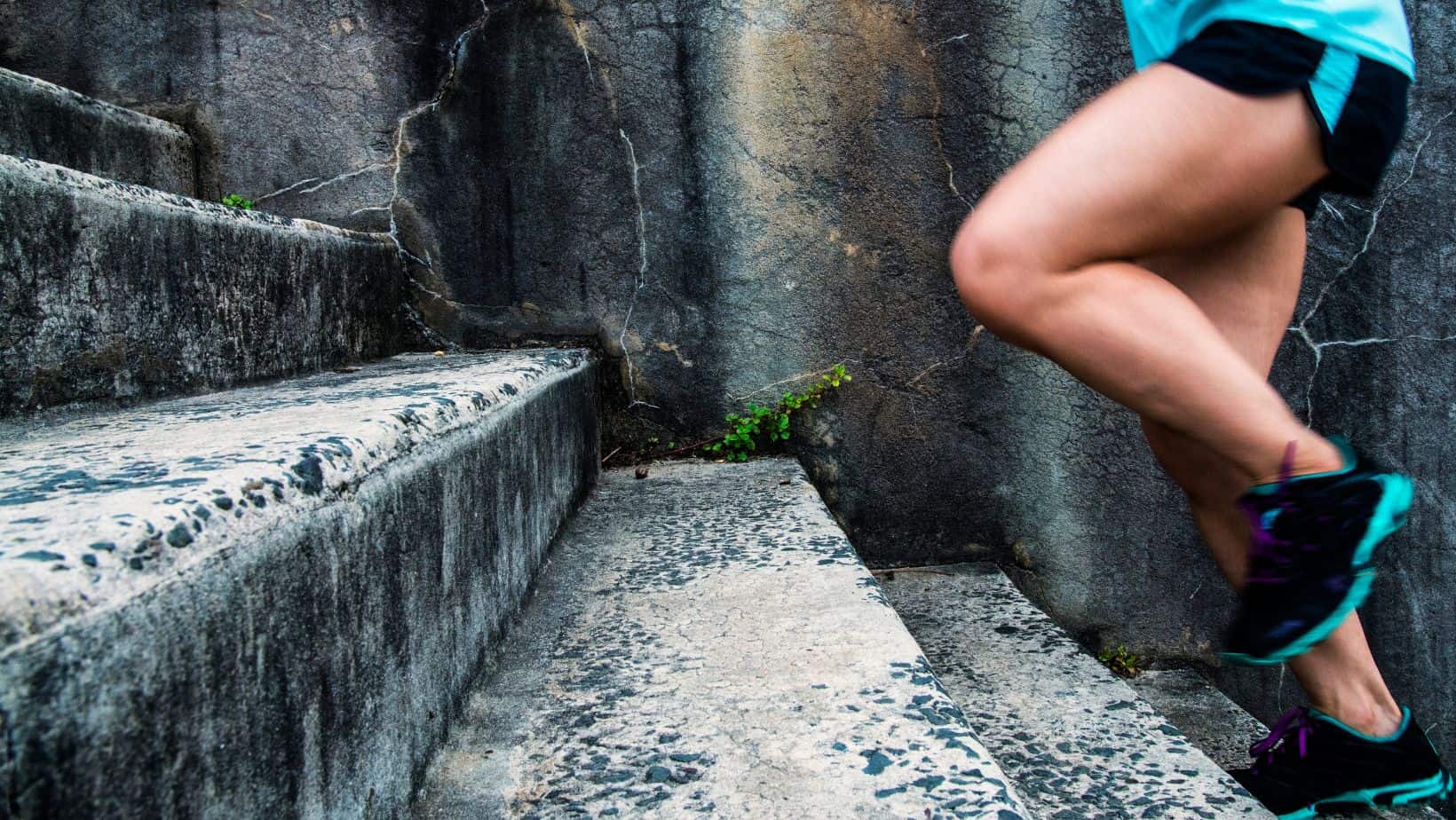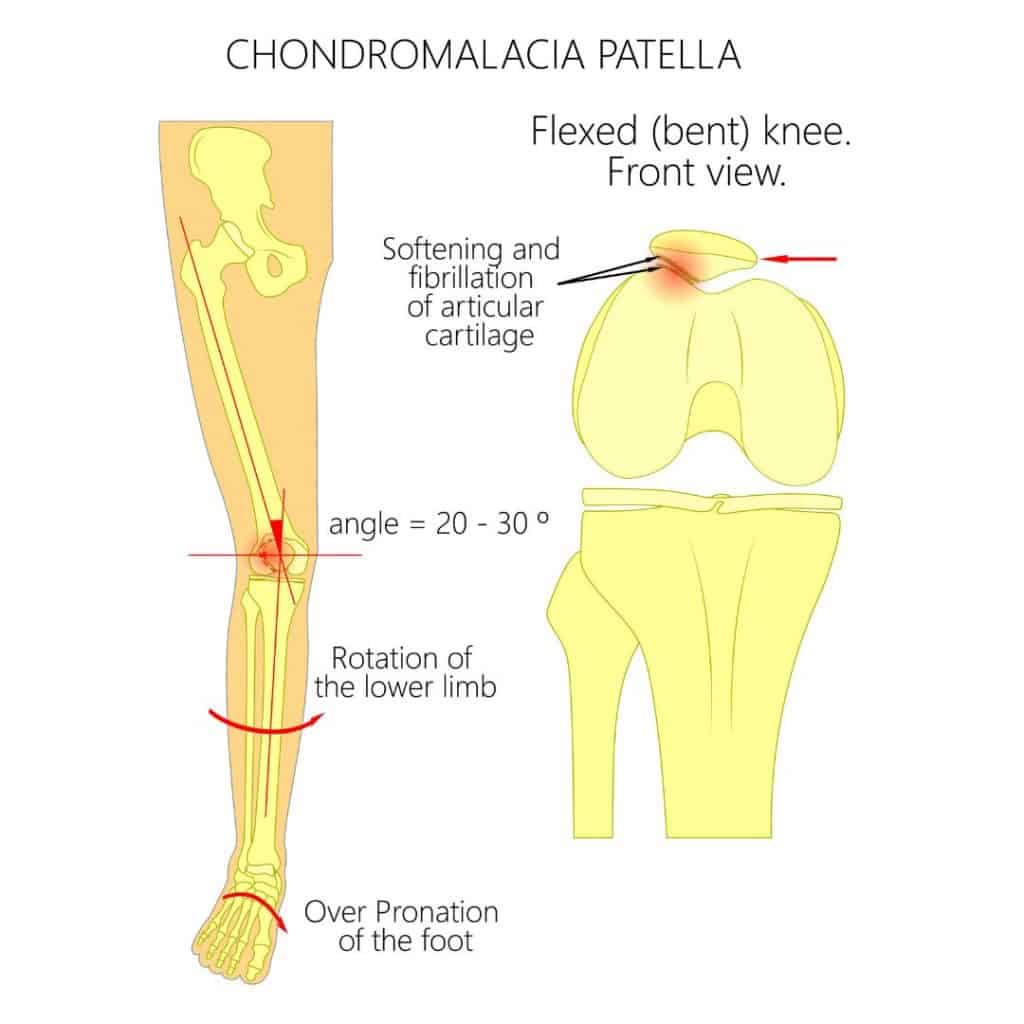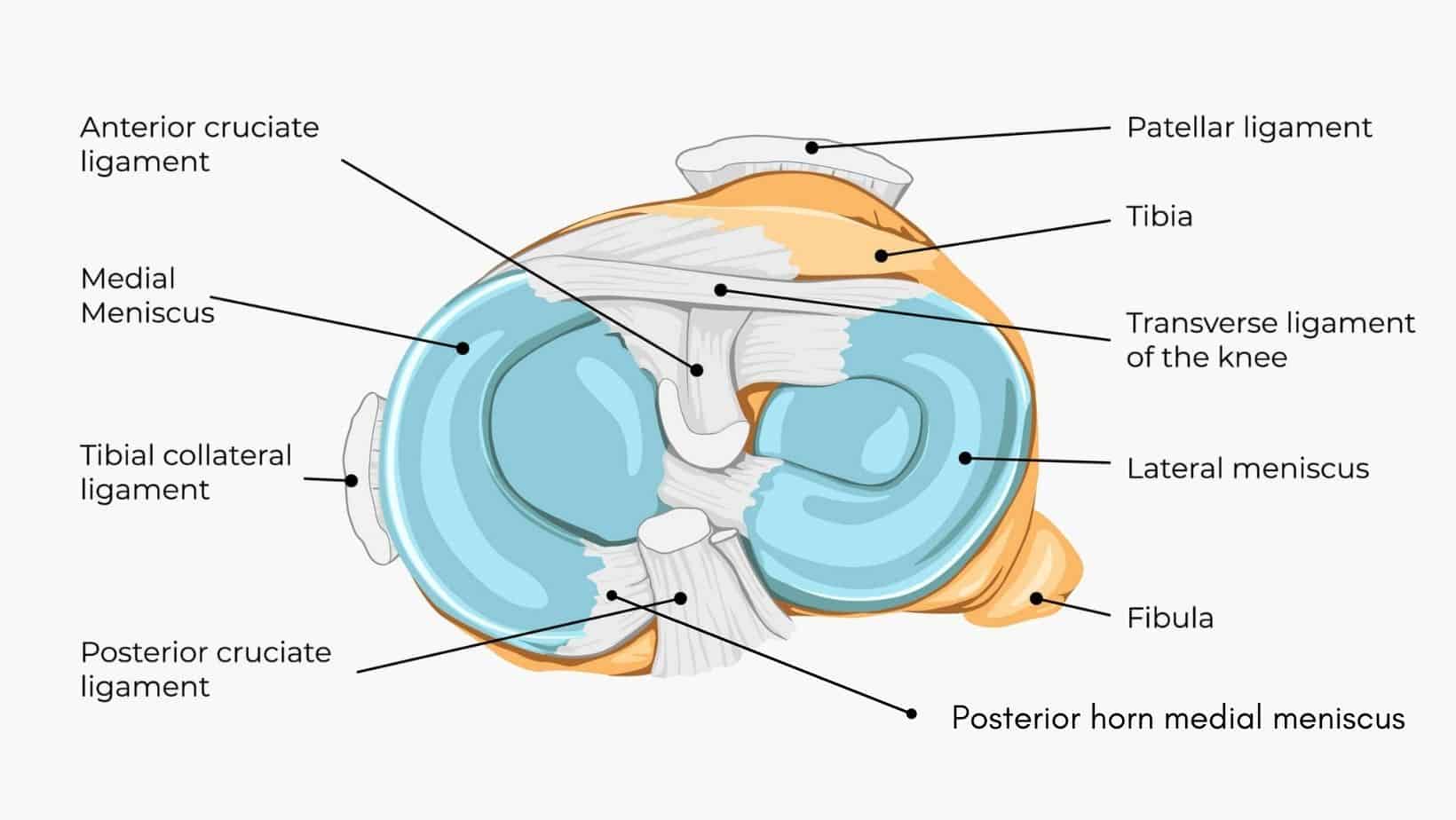Chondromalacia Patella
Read More >
Knee clicking is very common and can happen for many different reasons. Many people have a clicking knee at some time in their life. It is most common to have a clicking knee when walking, squatting or bending the knee or when climbing or descending stairs. Clicking can occur with or without pain.
If there is no pain or other symptoms, it is likely nothing to worry about. If clicking occurs with symptoms such as pain, instability, giving way, locking, or swelling, this is not normal and should be assessed by a medical professional such as a physical therapist or sports doctor.

There are many different noises that knees can make: clicking, grinding, popping, and clunking. If these are experienced with no pain and no other symptoms, then you shouldn’t worry. These are normal noises.
Some people have noisier knees than others.
Clicking or popping noises can occur in the knee, similar to cracking your knuckles.
Cavitation is the cause of the sound. Cavitation is the formation of a gas bubble within a liquid. All joints are filled with a liquid called synovial fluid. When two joint surfaces are pulled apart, they will resist separation up until a critical point. It is at this point that cavitation occurs. These “pops” are not repeatable like other noises of the knee. They may only be repeated after waiting several minutes.
It is more likely to occur when the surfaces are separated suddenly. A recent study provides evidence for this through the MRI images of finger joints taken before and after traction and the desired “pop” or “click”.
It is extremely common to have knees that make a crunchy or grinding noise with no pain. Often, it will go unnoticed until the action that causes it is done in a quiet room.
Crunching or grinding can occur when soft tissues move across or between the joint surfaces as the joint is moved. These tissues include scar tissue or the plica of the knee that sits in the knee and can fold and make these noises. This can be a consistent and repeatable noise when the movement is done.
Unless pain, swelling or instability is felt along with the noise, there is no cause for concern.

A more structural-sounding clunk can be heard, and if pain-free, it is likely related to the movement of the patella or a tendon or ligament moving over a bony prominence.
The patella should sit in the grove of the femur bone, but it can sit out of the groove and drop in suddenly. Reasons include tight muscles or weakness which can cause patella tracking disorders and instability.
Tight muscles or very prominent bony points can cause the tendons or ligaments to click and clunk as they move over these points. It often feels like something is clicking back into place. These are more likely to be repeatable noises with a particular movement, such as bending and straightening the knee.
There are many potential causes of painful clicking knees. After an injury such as a twist or fall or after surgery, pain and clicking can occur. Similarly, pain and clicking can develop gradually with wear and tear. A click is a poor diagnostic differentiator, as several knee issues can cause it.
The patellofemoral joint is a common cause. This is the joint of the knee cap sitting on the femur bone. The knee cap, like all joint surfaces, has smooth cartilage. This can get worn and damaged, making it uneven, which can cause knee clicking.
Wear of the patella can be called chondromalacia patella or patellofemoral arthritis. This will usually be experienced with some pain, often felt behind the kneecap. A less severe condition is runner’s knee which is irritation to the patella without damage.


Another frequent structure that can cause painful clicking, crunching or clunking in the knee is the meniscus.
The meniscus is made up of a strong type of cartilage but can become worn, damaged or torn. A meniscus tear can be the cause of noise.
While the cartilage of the meniscus is a thick, tears can fold and bend. The knee joint can click and clunk as the joint moves over these damaged parts.
This article is written by James McCormack, a Lower Limb Specialist who is an expert in treating Knee Pain.
This is not medical advice. We recommend a consultation with a medical professional such as James McCormack if you are experiencing any of the symptoms discussed in this article. James offers Online Physiotherapy Appointments weekly and face-to-face appointments in his London clinic.